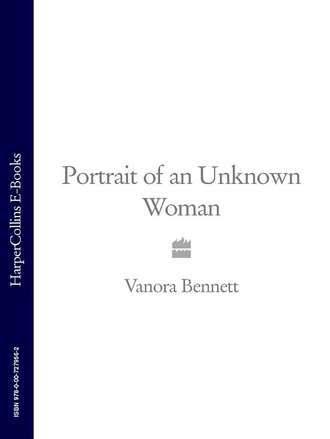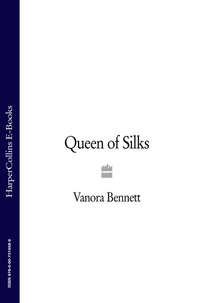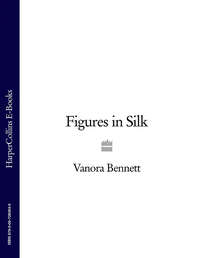
Полная версия
Portrait of an Unknown Woman
I might have been embarrassed. It was just the kind of needling observation Elizabeth was too good at for anyone else’s comfort. But luckily Master Hans wasn’t making sheep’s eyes at me now. He was sitting at the table, glowing in the warmth of Father’s undivided attention, which, as it always did with everyone, was making him feel confident and expansive. He had a miniature copy of the portrait of Erasmus that he had taken to Archbishop Warham propped on the table, and a sketch of the answering portrait of the Archbishop’s cavernous old features that he was planning to take back to Erasmus in Basel – he’d clearly struck lucky in his first two weeks in England to have got that commission (but then Warham, one of Father’s bishop friends, had always been a kindly old soul, and even if he hadn’t been it was fast becoming de rigueur to repay the gift of one of Erasmus’ portraits in kind). Now he was talking enthusiastically in his accented English about how to do our family painting. I could see Holbein was a good salesman. There was already talk of two separate pictures – a portrait of Father by himself, to send to the other humanists around Europe, as well as the group picture for our hall that the German had originally been asked to make – and he was showing Father a completed picture too, a noli-me-tangere with a virtuous Christ shying away from a voluptuous Mary Magdalene, which I could see had struck a chord with Father and was about to bring the painter another easy sale. I sat quietly down near them to listen.
‘There was a fresco I saw at Mantua,’ Holbein was saying, so carried away by his idea that he was beginning to move saltcellars and knives around on the table to illustrate it. ‘I can’t get it out of my head … The Duke and his dearest love, his wife, facing each other sideways-on near the middle of the canvas … the family all around… someone leaning forward from the left for instructions…’ He paused gleefully, visibly expecting to be praised for his cleverness. ‘And, right at the centre, looking straight out of the picture,’ he said, then burst out laughing at his own joke, ‘the Duke’s dwarf!’
It was a slightly shocking idea. There was a moment’s silence when we all looked at Father, waiting to see how he would react. He paused for a second too. Then his face opened in helpless laughter – the kind of generous approval that made people everywhere love him. ‘The fool at the heart of the family! That’s a marvellous idea!’ he snorted; and, without having been aware before of any tensions in his face, we could see all the worries of the court being wiped from it now, and we all began laughing too, in relief and sympathy and soft, adoring love.
‘Let’s see how it would look,’ Father said, still grinning mischievously, and with his mind full of the idea. ‘Henry!’ And he beckoned out the fat simpleton from the corner. ‘We have our own king of fools here, as you see,’ he told Master Hans, and in a flash of enlightenment I saw in Henry Pattinson, the ginger fool whom Father so loved, a grotesque parody of the big features of golden King Henry himself, and wondered if that was why Father kept him; and wondered, if that were so, at the daring in Father’s apparently disingenuous remark (and whether Master Hans had had it in mind all along to put our Henry the Fool at the heart of our family).
Before we knew it, we were in position, with Master Hans, masterful now, walking us to the places he’d given us in his mind’s eye. Henry Pattinson staring, blank and baffled as ever, straight towards the artist. Father and his daughter Margaret Roper facing each other slantways (I was impressed at Master Hans’s quick understanding of who Father’s great love was). Me next to Elizabeth, and leaning over Grandfather to whisper into his deaf ear. Everyone else either arranged around us or watching and clapping us on.
And then, in the middle of the hubbub, Elizabeth whispered, ‘Where’s John Clement?’
‘Gone,’ I whispered back.
‘What, without even saying goodbye?’ she said, louder, and she turned her head so sharply round to look at me that she broke the composition of the group. Master Hans looked up, warning us with his eyes not to step out of line.
‘He had to leave,’ I muttered, frozen in my artificial position, looking down at Grandfather’s velvet-wrapped old knees.
‘Stay still,’ Master Hans called to us.
She looked back at him. ‘I’m sorry, Master Hans,’ she said, in a small voice. ‘I’m afraid I’m not feeling very well. I think I’ll have to go to my room.’
And she detached herself from the group and left the room, followed, after a moment’s indecision, by the bobbing Adam’s apple of her husband. She did look pale.
We might have stopped then. But Father quickly filled the gap. He was too fascinated by the painter’s imagining to countenance the group breaking up. The two men were revelling in the speed with which they’d come to an intellectual understanding, laughing together and catching each other’s eyes as they saw the picture take shape. ‘John,’ Father called with a smile (knowing there were enough Johns in the room to stand in for multiple defectors), ‘will you take Elizabeth’s place?’ And so the actors didn’t disperse until after Holbein, who had magicked a scrap of chalk and a slate out of the old leather bag he kept with him, had finished a lightning sketch of how we would stand in our picture – a representation of the perfect humanist family that would be new in itself, as playful and forward-looking as any of the new learning, a far cry from the stiff old depictions of pious artists’ patrons as saints with which rich men still liked to fill their chapels. And the party carried on until late in the evening, when, a moment after Father excused himself to write business letters and slipped away to the New Building, the light suddenly seemed to go out of the room, and all the guests remembered how tired they were and went to bed.
It was only late at night, when I was lying in bed (unable to sleep with excitement, my heart bursting at the memory of all that had happened that day and with all the plans I was making for my future with John), that I heard Elizabeth retching behind the closed door of her room, and the scrape of a chamber pot, and William’s nasal whispering. I couldn’t hear his words, but his tone was the mix of reassuring and nervous you’d expect from any father-to-be. It began to dawn on me what the reason for her sudden discomfort might have been.
5
‘Elizabeth,’ I whispered. ‘Elizabeth. Are you all right?’
It was still dark. Just before four in the morning, long before first light, but long after I’d heard Father’s footsteps tiptoeing down the corridor to begin his early shift of work and prayer in the New Building. In a few minutes the household would begin to stir.
It was hours since I’d sprung awake again and lain warm under the counterpane up to my frosty nose, waking up to joy and quietly loving the cold, creaking silence in which I could hug my secret to myself. But the miserable sounds coming from Elizabeth’s room hadn’t stopped. They were still going on now.
So I put a shawl over my shoulders and slipped out to the corridor, to pat at her door and see if I could help. I was the one with the medicine chest and the knowledge.
She wouldn’t answer.
I shivered. I could hear the fires being laid downstairs.
Eventually footsteps did pad up to the other side of the door. I breathed out in relief.
But it wasn’t Elizabeth’s head that poked out. It was William’s – tousled, drawn and more pink-eyed than ever from lack of sleep.
‘Meg,’ he said, with well-bred restraint but no great gratitude. ‘What can I do for you?’
‘I thought …’ I began. ‘I thought I heard someone being sick. I thought Elizabeth might need some help.’
He smiled. Perhaps it was just the way his features were arranged, but I couldn’t help thinking his expression patronising. ‘Everything’s quite all right,’ he said with visible patience. ‘There’s nothing for you to worry about. So run back to bed …’
I could almost hear the unspoken ‘like a good girl’ on his supercilious lips.
‘Oh,’ I said, feeling crestfallen, looking for information on his face and finding nothing he wanted to tell me. ‘Well, if you need anything … I have a chestful of remedies in my room …’
‘Thank you,’ he said, with finality. ‘We’ll be sure to come to you if we need anything. Don’t get cold out here.’
And, very gently, he closed the door on me.
Elizabeth didn’t come downstairs for breakfast. William was one of the party that walked through the darkness to the village for Mass at seven – but his wife wasn’t. He offered no explanations. Father, in a surplice, was acting as altar-server this morning, following the priest to the altar step as the Office and Kyries and censing and Gloria in Excelsis began. That gave me the freedom to sneak a look at William while we stood in the family chapel (whose twin pillars were still covered with the scaffolding that would soon be used to carve Father’s symbols on the stone). His hair was slicked neatly back and, bar a little extra pinkness about the eyes, he was as expressionless as ever. Even when the bells rang out, and the candles and torches were lit in the heavy scented air, and the priest lifted the sacrament above his head – displaying the wafer that the common people believe to be a magical talisman which can heal sickness and cure blindness, as well as a holy sign, Christ’s body and blood returned to earth – and everyone else’s faces filled with joyful adoration, William only had his usual slight smirk as he knelt. He was a cold fish, I thought, taking less trouble than usual to pretend I didn’t dislike him. He seemed a good match on paper. His father was a senior official in the royal treasury. But his conversation always seemed so limited, and his personality so stultifying and self-satisfied, that I knew I’d never enjoy his company. Not for the first time, I found myself wondering what pretty, witty Elizabeth could possibly have seen in him (apart from a way of pleasing Father by marrying a colleague’s son). Bubbling as I was with my own happiness, I surprised myself by feeling a stab of pity for her.
She was alone when I sneaked into her room after Mass. She’d tidied herself up a bit and was flopping back in a chair by the fire. But her face seemed drained of blood and she barely acknowledged my presence. The rank chamber pot was still beside her, covered with a flecked cloth.
I could see she didn’t want me there. But she was too weak to resist when I felt her pulse and temperature (clammy but cool). And gradually the expertise in my hands took the edge off her reluctance to speak. She relaxed, at least enough to say: ‘It must have been something I ate.’
I nodded. It was up to her how she explained her sickness.
‘Let me bring you some ginger tea,’ I suggested. ‘It will soothe you. And do you think you could keep any food down yet?’
She grimaced. A hand crept to her stomach. She shook her head.
‘I’m going to bring my medicine chest in here and brew up your tea for you in front of the fire,’ I said brightly. ‘And keep you company while you drink it.’
My chest contained everything. Remedies against fever and ague, chills and chilblains, toothache and heartache. Jars full of memories of Bucklersbury. Knives and pans, and a pestle and mortar, and John Clement’s balance to weigh out the powders I made. And a single ginger root, withering in its jar: expensive, but a more potent relief for nausea than anything else I knew, even slippery elm or chamomile leaves. I began scraping slivers into my little pan, loving the calmness of this quiet ritual and the sureness of my hand on the exotic spice from a faraway land, aware of both myself and my sister being lulled by it as much as by the rushes of sparks and slowly collapsing logs in front of us.
Grateful that she was too sick to mention John Clement, and enjoying the quiet warmth between us, I began softly telling her about the medicinal properties of ginger: that it makes the human body sweat, that the King himself has recommended it as a remedy against plague, that a compress of it applied to the face or chest will clear an excess of phlegm, and, most important, that it’s a guaranteed cure for griping.
As I set the pan full of water on the hook above the fire, Elizabeth began to stir and sit up straighter and look into my treasure-trove. ‘You have so many jars in there,’ she said faintly. ‘However do you remember what’s in them all? Don’t you ever muddle up, say …’ she pulled out two jars at random, ‘this one, and this one?’
I shook my head, sure of my mastery of the subject. ‘Never. Too dangerous,’ I said, and then I saw she’d picked up black haw and pennyroyal, and laughed. ‘Especially with the two you’ve picked,’ I added, taking advantage of the chance she was flatteringly giving me to show off a little. ‘The one in your left hand is to ward off miscarriages. But the other one brings on women’s bleeding. It’s what village women use to wish away unwanted pregnancies. Pennyroyal oil. Not a mistake you’d want to make.’
She put the jars back in the chest with a little show of horror. But she smiled too.
‘Ugh. And what else do you have … love potions?’ she asked, trying to be light.
I shook my head again. ‘You have to ask the village witch for those,’ I said, just as lightly, then looked more closely at her. Beyond her sickness, there was something unusual in her eyes. If I didn’t know her so well, I’d have said it was something like the desperation of a trapped animal. ‘You don’t need a love potion, anyway,’ I added, with as much comforting warmth in my voice as I could muster, ‘you’re a newlywed bride with a brilliant young husband.’
The trapped-animal look was there again, stronger than ever – a hot dark shock of fear behind her eyes.
‘… Yes … though sometimes,’ she hesitantly began to frame a thought she’d clearly not imagined putting into words before, ‘I wonder about William … what kind of husband he will be. What kind of father. We know so little about the people we marry, after all …’
Then she stopped. Took control of herself. Shut the trapped animal back in its cage and smiled at me in the coquettish social way I normally expected from her. ‘Look, Meg,’ she said. ‘The water’s boiling.’
She was right. And suddenly the air was filled not just with regrets and untold secrets but with the spicy smell of hot ginger.
Ginger was in the air all morning. It was a day for medicine.
When I slipped downstairs an hour later, after covering the sleeping Elizabeth with a quilt, I found Margaret Roper sitting alone in the parlour, looking out of the window. There was a viol and a sheet of music on the table beside her. But I hadn’t heard her playing.
‘I smelled ginger tea,’ she said as gently as ever. She’d always been my favourite of the sisters – the nearest to my own age, and the one I’d most often shared rooms and beds with; the quiet good girl who’d always been sensitive with other people’s feelings and who was now, despite all that quietness, gaining a reputation (enthusiastically fostered by Father) as England’s most learned woman. ‘I guessed you were looking after Elizabeth. How is she feeling?’
‘A bit queasy,’ I said noncommittally. It was for Elizabeth to explain her sickness. ‘But she’s sleeping now.’
Margaret’s eyes were shining. ‘Will you make me some ginger tea too, Meg?’ She smiled and paused, picking her words carefully before tremulously taking me into her confidence: ‘For the same reason?’
Her dark bony face was so radiant that I couldn’t stop my own face breaking out into a grin. ‘Margaret! You’re going to have a baby!’ I cried, and held out my arms.
We were still brewing up the second pan of ginger tea, murmuring excitedly together, when Cecily put her head around the door, sniffing. ‘That smells wonderful,’ she said into our sudden silence, and I was already beginning to recognise the soft, knowing smile in her eyes. ‘I’ve been so sick this morning … is there enough for me too?’
All three young matrons excused themselves from dinner at midday. But everyone in the house knew that Margaret and Cecily had announced themselves pregnant. Father, back from a long session closeted with Master Hans, being sketched and sitting perfectly still, was the last to hear. Looking as radiantly happy as they had, he offered a special thanksgiving prayer for them and their unborn children – his first grandchildren. He even broke with his usual water-only rule and drank a little wine with his pleased, pink-faced sons-in-law Will and Giles. Only William Dauncey was not there to join the toast. He was upstairs, like a dutiful husband, with his sick wife.
I waited for him to come downstairs before checking on Elizabeth again in the afternoon. She was lying on top of the bed, awake now, with some colour back in her face. But sad.
‘I’ve been making ginger tea all day,’ I said brightly. ‘Have you heard? Margaret and Cecily are both pregnant. They’re feeling so sick they won’t touch anything else.’
She looked up, straight into my eyes.
‘So you know,’ she said flatly. ‘So am I.’
‘We’ll have three October babies then!’ I said, trying to pretend surprise.
‘Yes,’ she said. Even more flatly. Then she shook herself. ‘I do feel ill,’ she said piteously. ‘Will you make me more tea?’
I pulled the counterpane up to her chin and tucked it round her.
‘You stay warm,’ I said. ‘It won’t take a minute.’
She was quiet while I grated and boiled my infusion. I thought she might be dropping off. So I was surprised to hear her tired voice mumble, even more piteously, from behind my back: ‘Was it you John Clement came to see yesterday?’
I paused, considering how best to reply. But, by the time I finally turned round, with the steaming drink ready to take to her bedside and a soothingly fact-free answer ready on my lips, she’d fallen asleep.
6
‘So it will be a fruitful family portrait,’ opined Master Holbein, as he led me into the little parlour that had been turned into his studio. It had a friendly, cluttered air. There was an easel (with the first sketches for Father’s solo portrait, made yesterday, still on it) and piles of cloths and props. At a table under the window he had the makings of his colours: almost as many jars and powders and oils and pestles and mortars and pans as I kept in my medicine chest. I felt instantly at ease.
I laughed. ‘Yes … So many babies! You’ll have to paint us quickly, before the house turns into a nursery.’ And then I blushed, almost before I’d had time to catch my mind, or perhaps my body, flashing off into its private dream of my own belly rounding beneath me, and the pride I could imagine in the familiar, elegant man’s hands touching the swelling and feeling proprietorially for the kicks and somersaults of a life to come. I touched my cheeks, trying to will the mental picture away, but not quite able to bring a self-possessed chill back to my expression.
He grunted. Looking at me without quite seeing me, reducing me to lines and blocks of colour in his head, ignoring my flaming cheeks, arranging me in his mind in a way that still disconcerted me. Gesturing me to the chair.
‘Oh,’ I asked, full of curiosity, ‘but may I see Father’s picture before I sit?’
His face closed. He shook his head and moved his body against the stretched frame behind him, covered with a cloth, as if to protect it from me. ‘Not yet,’ he said. ‘It’s not ready.’
‘But when you start to paint?’ I persisted.
A little surprised, he looked differently at me. Suddenly focusing on my face. Then he nodded and shook his head, both at the same time. ‘Yes,’ he said simply. ‘Later. This is only a first sketch. I want to get it right first. I hope this will be an important picture for my future. You understand.’
I did. And I didn’t mind his frankness. He’d only had a day to capture Father’s likeness. Father had already gone back to court. Master Hans would have more time for the rest of us, since we weren’t going anywhere. But it was getting Father’s face right that would bring in commissions for him.
I sat, sometimes aching with stillness and tormented by tiny itches and sometimes lulled by my own inactivity, but always with a tiny, yearning part of me imagining that the footsteps approaching the door might be not those of whichever servant or sibling happened to be passing on whatever mundane errand, but those of John Clement, come back, long before time, to announce to everyone in the house that he was claiming me as his bride. Master Hans talked. Stolidly; perhaps to calm me and keep me still. Catching my eye every now and then – interrupting the train of thought in which Margaret Roper rushed merrily into my arms to congratulate both me and John, and Cecily laughed at the sight of my uncharacteristically girlish confusion, and young John More looked as surprised as he was by everything – but usually staring at the paper or at some part of me in his odd, impersonal craftsman’s way. And I listened from my pink cloud of happiness, from very high up and far away.
He was talking about fathers first: platitudes about how much they teach you and how they love you. Then, matter-of-factly, he also told me about his own father’s death: how relieved his wife had been not to have to send money out of their tiny budget to keep the old man afloat any more; how hard it had been to get his father’s painting materials out of the Antonite brothers at Issenheim who’d been the old journeyman’s last employer. ‘I had to write to the burgomaster for two years before it was settled,’ he said; ‘Elsbeth would never have let it drop.’
He told me about the sketch he’d spent yesterday making. He’d already pierced the main outlines of Father’s sketched face and neck with tiny pinpricks, two or three to an inch. Next, when he’d done with me for the day, he would prepare the surface he would do the final painting on; then pin up the sketch on it – a map of Father’s face, a ghost of the reality he’d seen so briefly. He’d blow and smear charcoal dust through the tiny holes in the paper. That would give him the perfectly drawn outline of a face on his final canvas. That was when he’d show me.
And then he went quiet, and forgot me, and started to concentrate.
Sitting in silence left me all the time in the world to mull over the disquieting conversation I’d had yesterday with Dame Alice, when, as I hunted in her kitchen kingdom for more pipkins for the brewing of ginger tea, she’d materialised out of a pantry with a mess of capons’ brains for the next dinner in her big raw hands, encased in a grey-white pastry coffin ready for cooking. She had her usual entourage of boy servants behind her, loaded down with two headless capon corpses, bags of sugar, baskets of oranges, and jars of cloves, mace and cinnamon, and she was about to supervise the business of collecting knives and pots for the scaldings and boilings and stewings that would give us another celebration meal. Having guests, especially one as appreciative of a hearty meat dish as Master Hans, gave her the opportunity she was always looking for to show off her culinary skills. She was always saying Father didn’t properly enjoy her cooking: he only ever took a little from whatever dish was nearest to him (though we all knew he had a furtive taste for her mess of eggs and cream). She was clearly planning to cook up a storm for Master Hans, and looking forward to her afternoon. But when she saw me near the spit, hesitating over two of the little copper pipkins hanging up around the fire that she had so carefully scoured with sand before Master Hans’s arrival (not that she’d expected him to go near the kitchen – it had just been an excuse to use up some of her vast resources of practical energy), she sent the boys off to the storeroom again for nutmeg. For all her lack of Latin and frank scorn of book-learning, she had an innate sensitivity to other people’s moods, and she must have seen the yearning for a moment’s privacy on my face. So even though she looked curious to see me in the kitchen, she asked no prying questions, just said kindly, ‘Take the smaller one if you want to make one of your potions. I use the big one for cream.’ And waited.






